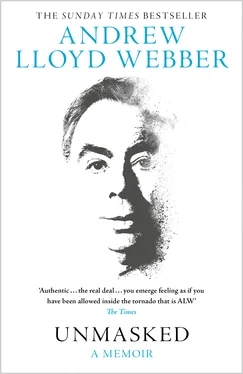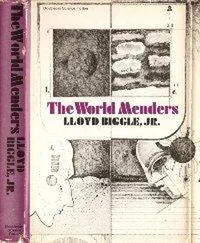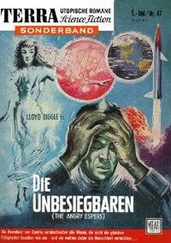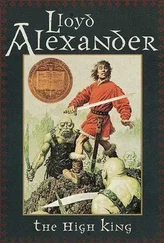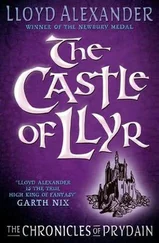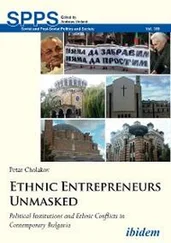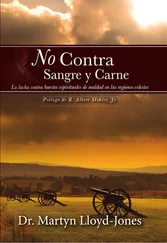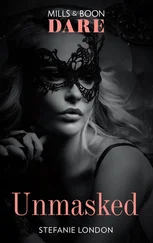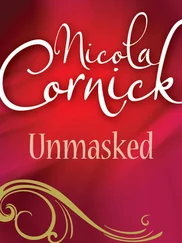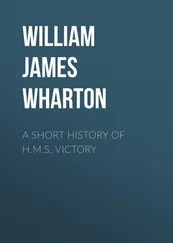London Palladium inspired pantomime and variety seasons at the Harrington Pavilion were short lived. Christmas holidays 1958 brought me full frontal with musicals for the first time. It was a baptism and a half. I saw My Fair Lady and West Side Story plus the movies of Gigi and South Pacific all in the space of four game-changing weeks. 1958 also coincided with the arrival of Harrington Court’s first long-playing gramophone. With it came an LP of Tchaikovsky’s Nutcracker Suite. Unfortunately for Dad the other side was Prokofiev’s The Love for Three Oranges Suite whose gloriously dissonant chaotic start much appealed to Julian and me. The famous march had us dancing on our bed with joy. Thus began my lifelong love of Prokofiev, in my opinion one of the greatest melodists of the twentieth century.
My Fair Lady was the talk of London throughout 1958. The legendary musical based on Bernard Shaw’s Pygmalion had opened on Broadway two years earlier to ecstatic reviews, apart from one Alan Jay Lerner told me about in Variety that said there were no memorable songs. The producers did a brilliant hyping job in Britain by banning the music from being heard or performed until just before the London production opened, with the result that the Broadway cast album was the ultimate in chic contraband. Naturally Auntie Vi had one, so by the time I saw the show I knew the score backwards and had long pondered whether Rex Harrison’s semi-spoken song delivery had a place at the Harrington Pavilion. London’s lather frothed even further as the three Broadway leads, Rex Harrison, Julie Andrews and Stanley Holloway, repeated their starring roles at the Theatre Royal Drury Lane and I was lucky enough to have a ticket to see all three – actually two because Stanley Holloway was off. It’s funny how a disappointment like that stays with you forever. In my case that and the rustling front cloth depicting the exterior of Wimpole Street as Freddy Eynsford-Hill warbled “On the Street Where You Live” are what I remember most about that December Saturday matinee – apart from my showing off by singing along with the songs to show I knew them.
My love of the score took me to the movie of Gigi , the now impossibly un-PC story about a girl being groomed as a courtesan. Can you imagine what would happen if you pitched a Hollywood studio today a song sung by an old man entitled “Thank Heaven for Little Girls”? Thank heaven I was young enough only to agree and even today the overture from Gigi is something I relish hearing.
Curiously it was Granny Molly who banged on about West Side Story and it was she who took me to it. The American cast’s dancing was like nothing I’d seen before. That two stage musicals could be so different, yet equally spellbinding, had me in a tailspin. Granny bought me the Broadway cast album for Christmas and pretty soon it was my favourite of the two. I related to Bernstein’s score much as I did to Prokofiev’s Love for Three Oranges .
However what completely pulverized me was the film of South Pacific . I went with Mum and Dad and I remember the afternoon I saw it as vividly as the legendary colour filters that would have clobbered a lesser score. I had to wait until my birthday the following March for the soundtrack album. I still treasure my battered worn copy – incidentally it is the only album to have been No. 1 in the UK charts for a whole calendar year. By Christmas 1961 I knew the scores of Carousel , The King and I and Oklahoma! and had seen the South Pacific movie four times. But there was one other movie. It only had a few songs but it grabbed me nonetheless. Elvis in Jailhouse Rock. The “Jailhouse Rock” sequence had me standing on my seat. I still have the worn-out 45 rpm single that drove my parents to distraction.
Musicals were soon the staple diet of the Harrington Pavilion. I wrote tons of dreadful ones. An audience of bored parents, friends, relatives and anyone I could find would gather for the latest offering with Julian and me on vocals, and me alternating as pianist and scene-shifter. At its zenith the theatre’s stage, were it to have been built lifesize, would have dwarfed that of the new Paris opera house at the Bastille. Subjects included everything from The Importance of Being Earnest to The Queen of Sheba . A whole fantasy town developed around the theatre. Everyone in this town was somehow dependent upon the theatre’s well-being. The Harrington Pavilion had a box office through which the townspeople booked tickets. Hits or turkeys were assessed by the reaction of the audience of bored parents and friends.
I developed with Julian a complete world in which I could hide and where I was truly happy, a make-believe world with one common denominator, musical theatre. There were stars who came and went, made comebacks or passed into oblivion with billing to match. There were pretend directors, designers and programmes, even souvenir brochures, for I was very impressed by the stiff-covered job that went with My Fair Lady . There were special train services that ferried audiences from the fantasy town to the theatre on show nights and, when I was given my first tape recorder, original cast albums were quick to follow.
Praise be to the good Lord that the tape recorder in question was incompatible with any other. For some reason it had its own peculiar tape speed. Thus my prepubescent warblings, along with the gismo that recorded them, are mercifully lost to posterity. However I own up that two of the tunes survive in other guises. From Ernest! billed modestly as “A Musical of Gigantic Importance,” one became “Chained and Bound” in Joseph . The main melody of “Chanson d’Enfance,” appropriately titled under the circumstances, in Aspects of Love also came from this show. Quite how the latter could possibly have made sense dramatically in a musical based on Wilde’s timeless comedy eludes me.
However my burgeoning love of medieval cathedrals, ruins and churches affected me equally as deeply. I built a vast play-brick Gothic cathedral (dedicated to St Elvis) at the other end of the nursery to cope with the Harrington Pavilion theatregoers’ spiritual needs. St Elvis’s Cathedral fell victim to the wrecker’s ball and chain, i.e. Julian in a fit of rage knocked it down. But for many years the Harrington Pavilion, being glued together, survived unscathed. In the Sixties when I left home, my toy theatre was carefully dismantled and stored. But sadly it went missing when I moved house in 1974. All I have now are a very few photographs.
WITH THE TOY THEATRE shows came an increasing interest in me from Auntie Vi. Mum, frankly, whilst not disapproving of my puerile jingles, didn’t exactly approve either. She had transferred her ambition for a classical musician of a son onto three-year-old Julian, for whom she had bought a baby-sized cello. Dad, however, was starting to show an interest in what I was up to. When I was ten he took some of my tunes, arranged them very simply for the piano, and had them published under my name in a magazine called The Music Teacher with the title “The Toy Theatre.” Every now and again when I was experimenting away at the piano he’d come in and ask me how I had discovered some chord or another. I suppose that wasn’t surprising: my father, for all his grand title of Professor of Composition at the Royal College of Music, truly loved melody. In fact he was the most open bloke about melody there could be.
Thus in addition to hearing all the current musicals, specially when I went to visit Auntie Vi, my father would play me music of all sorts, albeit with a heavy leaning towards Rachmaninov. Dad’s taste in “serious” music did not embrace the modernists. He did, however, admire Benjamin Britten’s orchestrations, though he would wave his cocktail-shaker in anger that Britten left for America in the Second World War as a conscientious objector. Dad repeatedly moaned that Britten thus gained a massive unfair advantage over composers like himself who stayed in bomb blitzed London and did their bit for the war effort.
Читать дальше
